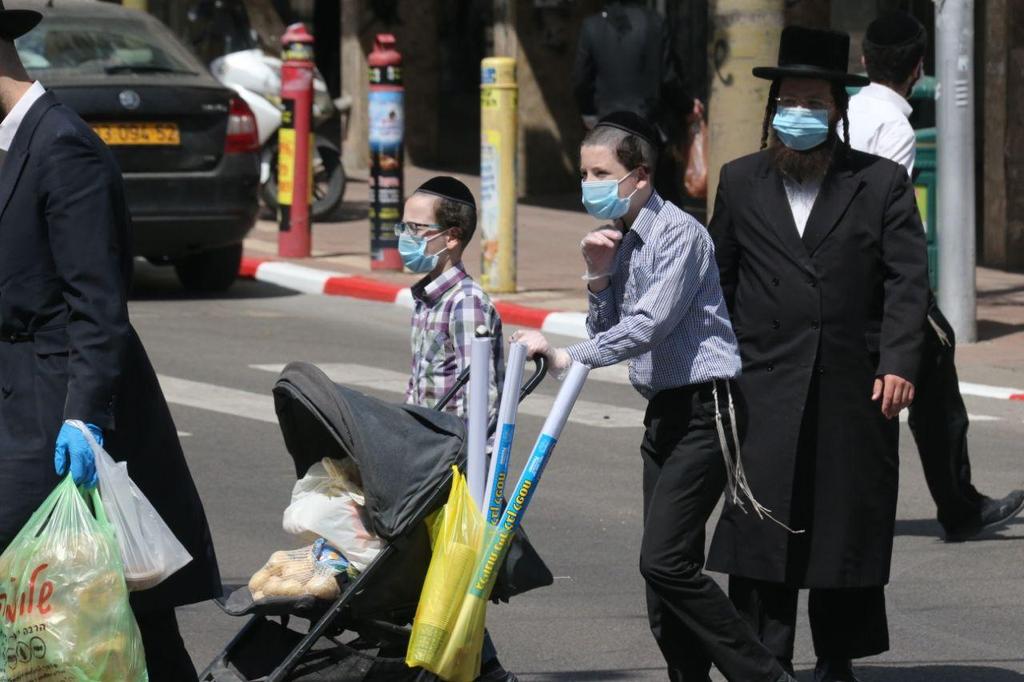Getting your Trinity Audio player ready...
The Torah sits at the very pinnacle of ultra-Orthodox life. They are raised on its principles and obey its commandments from when they take their first breath.
And what does the Torah say? It says the most important value in Judaism is preserving life. “Saving a life supersedes the Torah,” the commandment goes.
5 View gallery
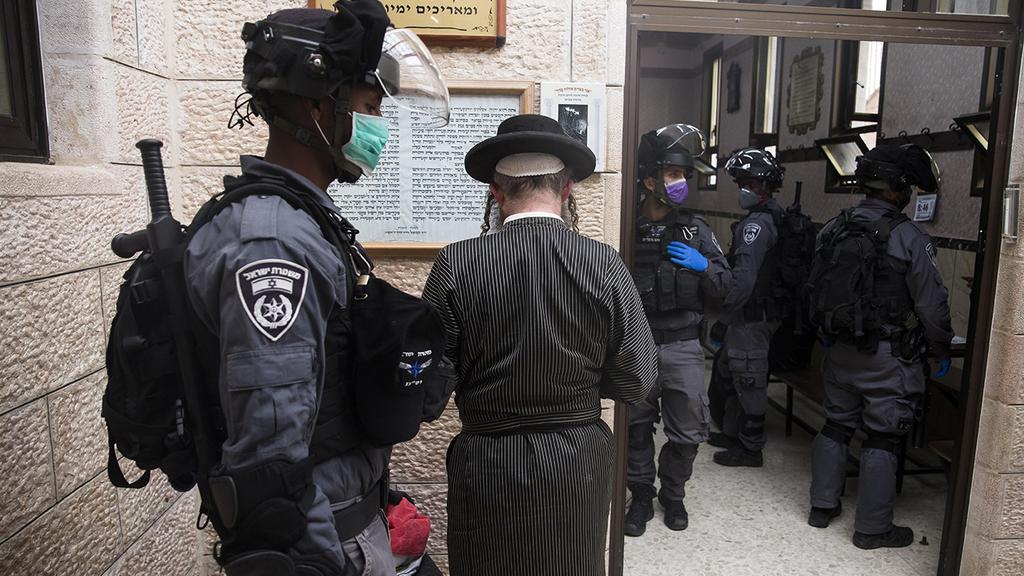

Police enforcing coronavirus regulations in the ultra-Orthodox neighborhood of Mea Shearim in Jerusalem
(Photo: Getty Images)
So do you really think that that the members of the Haredi community don’t know this? That as a people who live and breathe Torah, they would disregard human life in such a callous manner?
Three key points intertwine here, and it is this combination that has led to the current situation.
Firstly, one must understand that most defining factor of the Haredi sector is its sense of community, with each person part of a Hasidic group.
5 View gallery
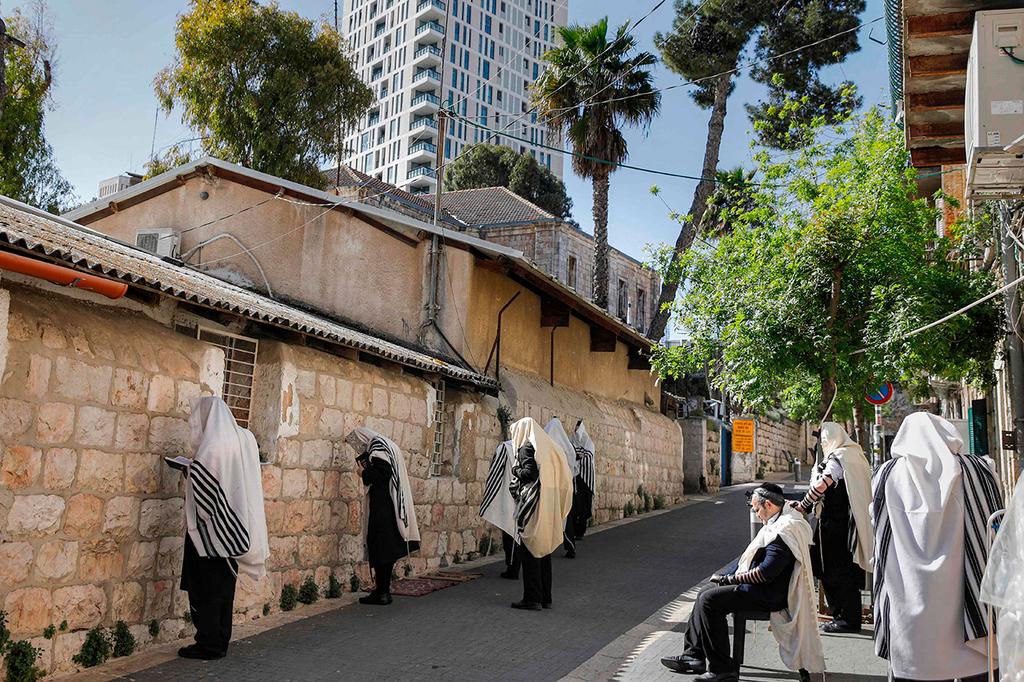

Haredi men practice social distancing as they pray outside a synagogue in Jerusalem
(Photo: AFP)
Community is the most fundamental principle in Haredi life. It is not some extracurricular activity like soccer or the gym - it is at the core of their existence.
No one can change their habits overnight, and all the more so when we are talking about large families and concentrations of people. And just as the elderly and those with existing health issues are at risk-groups, so too are the ultra-Orthodox when regulations dictate strict social isolation.
Secondly, one must consider the way information is disseminated. The ultra-Orthodox community receives only filtered information, as an overwhelming majority of the community has no television or internet.
Most ultra-Orthodox people do not receive alerts by cell phone, and as result many concentrations of the sector are not even aware of recent events. A lack of dedicated information for the sector is a direct consequence of a lack of understanding on the part of the state.
So how do you reach about one million people whose media exposure deviates from the norm?
Just as commercial companies cracked the "ultra-Orthodox code" and were able to figure out how to sell their products to the sector, the state must follow suit with a battalion of experts who can manage a comprehensive and aggressive public information campaign.
Thirdly, this is the run up to Passover, when the entire population of Israel is normally on holiday. This is even more the case for us, the ultra-Orthodox, with countless activities in preparation for the festival - most in communal form through groups and organizations.
5 View gallery
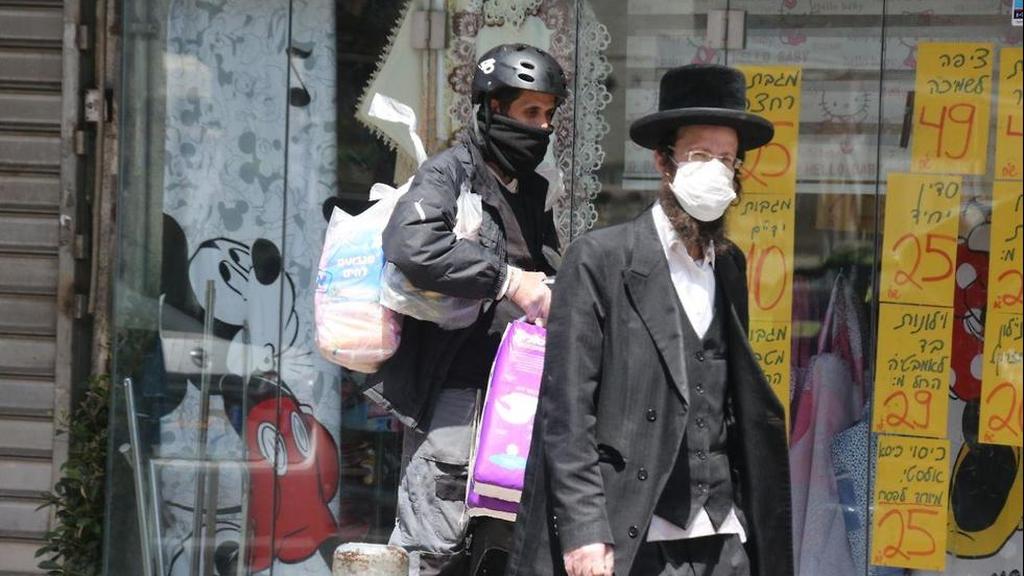

A Haredi man walks past a police officer enforcing coronavirus restrictions in Bnei Brak
(Photo: Moti Kimchi)
And so what we are dealing with now is what happens when you have the busiest time of the year for a population that revolves around its community, combined with an absence of a proper explanations about coronavirus in crowded cities and multi-child families.
The reality is that explanation takes time, and in this case, time is critical. Unfortunately, when you don't understand the sector and don't operate fast enough, the results are disastrous.
The ultra-Orthodox public understood the reality after a significant delay. But the good news is that now the overwhelming majority of the ultra-Orthodox population is fully committed to following the regulations.
5 View gallery
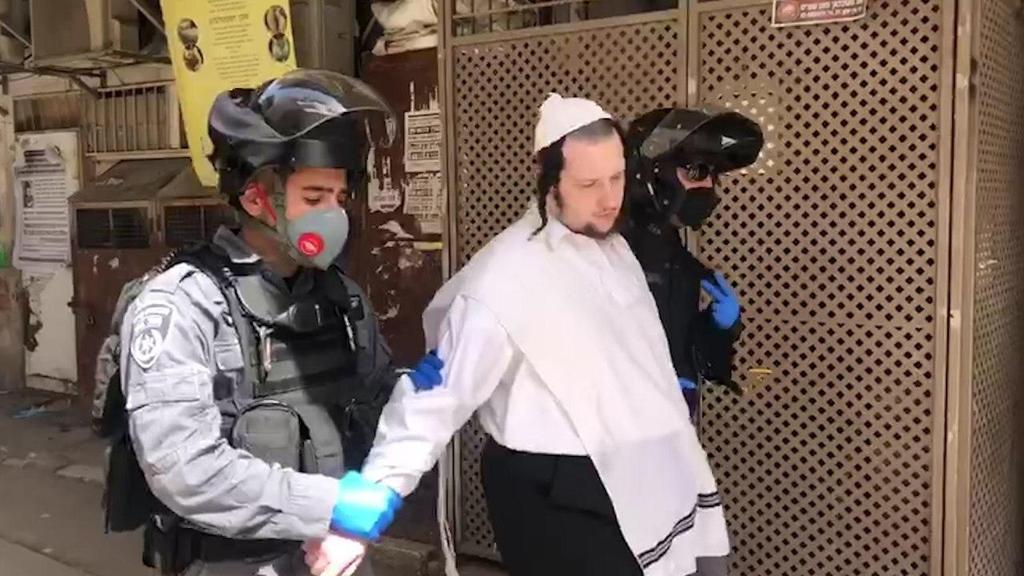

Police arrest a Haredi man for violating coronavirus regulations in Jerusalem
(Photo: Gilad Cohen)
The elders of the yeshivas have declared that quorate prayer (minyan) at this time is a sin. The lead headlines in the ultra-Orthodox press state announce an absolute prohibition on praying in a minyan, and order people to stay home "on the instructions of the giants of Israel" - namely, the rabbis.
Despite the enormous difficulty in adapting to a life without a community, we have all been educated that saving a life (pikuach nefesh) is the most crucial mitzvah of all.
The most important lesson that must be learned from this sorry story is that there are millions of Haredim in Israel whose lifestyles and media access are different to the rest of the population and it is imperative to prepare properly to tackle such emergencies in the community in the future.


